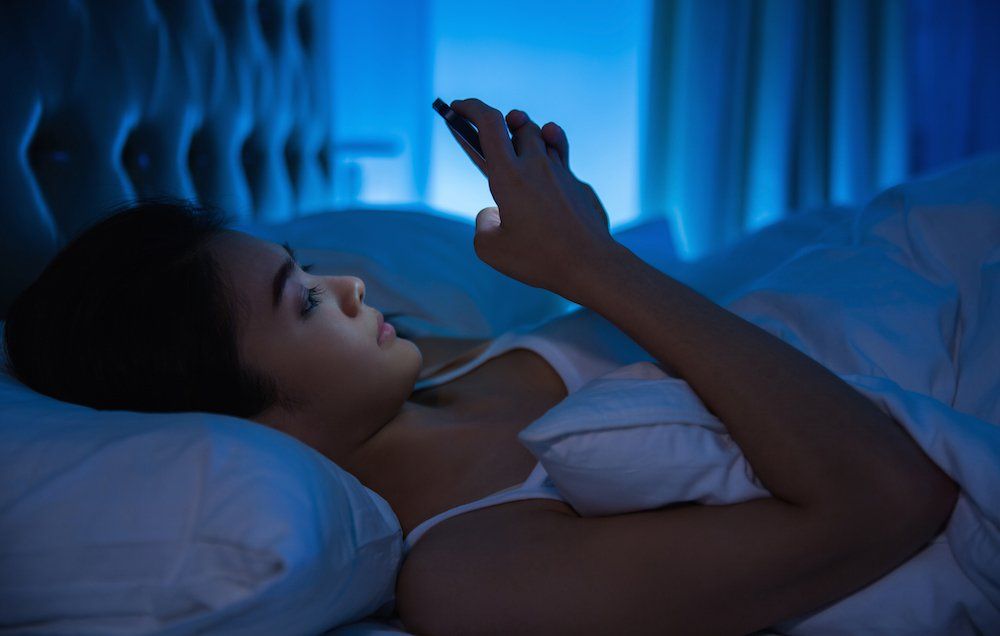As we are increasingly surrounded by screens of various kinds – computers, televisions, smartphones, and tablets – the question arises, does screen time affect sleep? In this article, we delve into the realm of sleep science to uncover how screen time affects sleep, the role of screens before actually sleep, and how screen time influences the quality of our slumber.
Understanding the Link Between Screen Time and Sleep
The role of light is the crux of the connection between screen time and sleep. Exposure to light during the day helps maintain a healthy sleep-wake cycle. However, many screens emit a high concentration of blue light, which can interfere with the production of melatonin, a hormone that regulates sleep and wakefulness. Therefore, prolonged screen time, especially before bedtime, can trick our brains into thinking it’s still daylight, leading to delayed sleep onset, shorter sleep duration, and poorer sleep quality.
Can Screen Time Affect Sleep Patterns?
A growing body of research answers the question: can screen time affect sleep patterns? The consensus is a resounding yes. Both the quantity and quality of sleep can be impacted by how much time we spend in front of our screens, especially in the hours leading up to bedtime.
The natural 24-hour cycle that regulates our bodies functions, including sleep, is known as the circadian rhythm. Light plays a pivotal role in maintaining this rhythm. During the day, exposure to natural light keeps us alert and active. As night falls, darkness cues the brain to release melatonin, a hormone that promotes sleep.
Yet, screens emit a significant amount of blue light, which can disrupt these natural sleep signals. Prolonged exposure to screen light tricks our brains into thinking it’s still daytime, delaying the release of melatonin and pushing back our sleep onset time. This can lead to later bedtimes, difficulty falling asleep, and shorter sleep duration.
Moreover, screen time can also affect the architecture of our sleep, meaning the various stages we cycle through during the night. Increased screen time has been linked with more frequent nighttime awakenings and less time spent in sleep’s deep, restorative stages.
In conclusion, excessive screen time can certainly impact sleep patterns, altering both when we sleep and how well we sleep. It’s a critical factor to consider in our quest for a good night’s sleep.
How Does Screen Time Affect Sleep?
- Disruption of Circadian Rhythm: Our bodies operate on an approximately 24-hour cycle known as the circadian rhythm. The blue light emitted by screens can interfere with this rhythm, causing our bodies to feel alert when we should be winding down for sleep. This can lead to difficulty falling asleep and disruptions to the sleep cycle.
- Reduced Sleep Quality: Screen time affects not only the quantity of sleep but also the quality. Increased screen time can result in more frequent awakenings during the night and less time spent in the restorative stages of sleep.
- Sleep Deprivation: Excessive screen time can lead to chronic sleep deprivation, characterized by fatigue, difficulty concentrating, and mood changes. Over time, it can increase the risk of obesity, diabetes, cardiovascular disease, and mental health disorders.
Screens Before Actually Sleep
The effects of screen time are particularly pronounced when screens are used right before sleep. Not only does this exposure to blue light disrupt the body’s natural sleep-wake cycle, but the content consumed can also stimulate the brain, making it harder to unwind and fall asleep. This is particularly true for engaging or stress-inducing content, such as work emails, news, action-packed movies, or video games.
Mitigating the Effects of Screen Time on Sleep
While the negative impacts of screen time on sleep are clear, eliminating screen use, especially in our digital age, is neither feasible nor necessary. Instead, adopting healthier habits can help mitigate screen time affecting sleep.
- Establish a Screen-Free Bedtime Routine: Dedicate the last hour before bed to relaxing activities that don’t involve screens. This can help signal to your body that it’s time to sleep.
- Use Night Mode: Many devices now offer settings that reduce blue light emissions in the evenings. This “night mode” can help lessen the disruptive effects of screens on sleep.
- Be Mindful of Screen Content: Try to avoid engaging or stimulating content close to bedtime. Opt for more calming activities or content instead.
How Long Should You Avoid Screens Before Bed?
One common recommendation from sleep scientists is to switch off digital devices and avoid screens for at least one hour before bed. This “digital sunset” helps prepare your brain for sleep by reducing exposure to blue light, which can delay the release of melatonin and disrupt your sleep cycle.
A more conservative approach, suggested by some experts, is to start dimming screens two to three hours before bed. This longer buffer period can be particularly beneficial for those already experiencing sleep disturbances or particularly sensitive to light’s effects on sleep.
On the other hand, it’s not just about when you use screens but also how you use them. If screen use in the evening is unavoidable, consider activities that are less likely to be stimulating or stress-inducing, such as reading an e-book or watching a calming show. Furthermore, utilize the night mode settings on your devices to minimize blue light exposure.
Setting aside screen-free time before sleep can greatly improve your sleep health and overall well-being. It’s a small adjustment with potentially significant benefits.
Screen Time and Sleep Quality: A Delicate Balance
In conclusion, there is a delicate balance between screen time and sleep quality. While the negative impacts of excessive screen time are clear, it’s essential to remember that not all screen time is created equal. Active, engaging screen use can provide intellectual stimulation and connection, but passive, late-night scrolling tends to wreak havoc on our sleep.
By understanding how screen time affects sleep and taking steps to mitigate these effects, we can better manage our screen time and protect our sleep health. As we continue to navigate our digitally-dominated world, ensuring a healthy relationship between screen time and sleep will remain an essential component of overall well-being.

